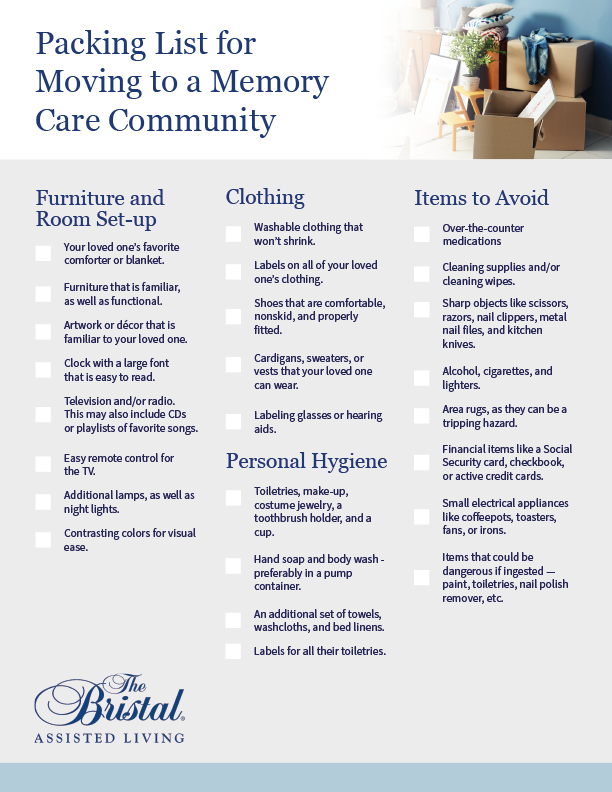Phenomenal Facilities Offering Comprehensive Alzheimers Care Charlotte
Specialist Tips for Providing Quality Alzheimer's Treatment at Home
Taking care of an individual with Alzheimer's illness at home presents one-of-a-kind obstacles that call for both understanding and critical preparation. Developing a structured everyday routine, boosting communication abilities, and creating a secure setting are essential components of effective caregiving. Additionally, caregivers need to not neglect the importance of looking for exterior support and sources to maintain their own wellness. As we discover these expert suggestions better, it ends up being clear that a thoughtful strategy can considerably influence the high quality of life for both the caretaker and the private getting treatment. What specific strategies can be applied to ensure an encouraging ambience?
Understand Alzheimer's Illness
Alzheimer's condition, a progressive neurodegenerative condition, greatly influences cognitive function and daily living tasks. It largely influences memory, thinking, and habits, causing a steady decline in the capacities necessary for independent living. Early signs usually include lapse of memory, problem in analytical, and challenges in completing acquainted jobs. As the illness proceeds, people may experience disorientation to time and area, impaired judgment, and modifications in mood and personality.
The etiology of Alzheimer's is complicated, including the build-up of amyloid plaques and tau tangles in the mind, which disrupt neuronal communication and cause cell death. Threat variables include age, genetics, and way of living selections, with the bulk of cases taking place in people over 65. Recognition of these facets is essential for caretakers, as understanding the condition can facilitate better support and care approaches.
Additionally, Alzheimer's illness not only affects the individual however additionally has significant psychological and logistical ramifications for households. Acknowledging the stages of the disease allows caregivers to prepare for obstacles and adapt their technique, making certain that the needs of those affected are met compassion and understanding. This foundational understanding is important for advertising quality care in the house.
Establish a Routine
Developing a structured daily routine can substantially boost the lifestyle for individuals dealing with Alzheimer's disease. Developing constant patterns assists to minimize complication and anxiety, offering a sense of protection and experience. A day-to-day routine ought to consist of regular times for dishes, activities, and rest, which can aid individuals expect what to expect throughout the day.
Incorporating straightforward, familiar tasks right into the regimen can promote a feeling of success and freedom. Tasks like horticulture, cooking, or perhaps simple household chores can be useful. It is necessary to tailor these tasks to the person's abilities and rate of interests, ensuring involvement without stress.
Furthermore, versatility within the routine is essential. While uniformity is necessary, permitting for modifications based on the individual's state of mind or energy levels can help maintain a positive environment. Urge engagement in social communications, whether with family sees or area tasks, as these can supply stimulation and connection.
Enhance Interaction Skills
Reliable communication is vital for keeping meaningful connections with individuals coping with Alzheimer's illness. As cognitive capacities decline, traditional discussion may end up being tough. Consequently, caregivers should adjust their communication techniques to foster understanding and link.

Active listening is vital. Program genuine interest by preserving eye call and nodding to recognize their thoughts or feelings. Avoid correcting or suggesting, as this might cause aggravation. Rather, confirm their emotions and redirect the discussion gently if required.
Utilizing visual aids, such as pictures or composed tips, can likewise improve comprehension. Encourage engagement in tasks that stimulate conversation, such as reminiscing concerning previous occasions or browsing picture cds.
Create a Safe Atmosphere
A helpful atmosphere plays a significant function in the health of people with Alzheimer's disease. Producing a risk-free home setting is vital to reduce dangers and enhance the see page high quality of life for both the private and their caregivers.
Mount safety locks on windows and doors to stop wandering, which is a common concern in Alzheimer's clients. Furthermore, take into consideration using non-slip floor coverings in restrooms and install grab bars click here for more for included support. Classifying areas and crucial things can assist individuals navigate their surroundings extra conveniently.
Emergency situation get in touches with ought to be clearly published near phones, and a medical sharp system can offer tranquility of mind. In general, customizing the home setting to the unique needs of the private with Alzheimer's not only promotes security but also urges freedom and convenience.
Seek Assistance and Resources
Accessing assistance and sources is crucial for people and caregivers encountering the obstacles of Alzheimer's condition. Caregiving can be frustrating, both physically and mentally, and it is crucial for caretakers to seek support to preserve their health and give top quality treatment.

Additionally, exploring break care alternatives can afford caregivers much-needed breaks, permitting them to decrease and reenergize burnout. This might consist of adult day programs or in-home treatment solutions. Monetary aid programs might additionally be available to aid offset the prices of care.

Conclusion
In summary, providing top quality Alzheimer's care at home requires a diverse approach. Recognizing the complexities of the condition, establishing a structured regimen, enhancing interaction skills, developing a risk-free atmosphere, view it and looking for assistance from offered resources jointly add to enhanced caregiving experiences. Implementing these methods not only cultivates a feeling of freedom and achievement for individuals with Alzheimer's but also minimizes caregiver anxiety, ultimately improving the lifestyle for both caretakers and those they sustain.
Caring for a specific with Alzheimer's condition at home presents unique obstacles that call for both understanding and calculated preparation.Moreover, Alzheimer's illness not only impacts the individual yet likewise has considerable emotional and logistical implications for families.Creating an organized everyday regimen can significantly improve the quality of life for people living with Alzheimer's disease.Efficient communication is crucial for maintaining purposeful connections with individuals living with Alzheimer's disease. Alzheimers Care Charlotte. Applying these techniques not only promotes a sense of independence and achievement for individuals with Alzheimer's yet additionally reduces caregiver stress, ultimately boosting the high quality of life for both caregivers and those they sustain